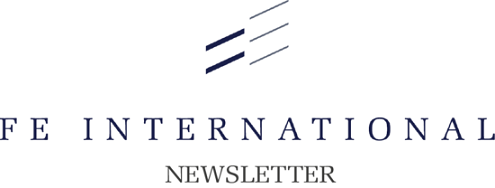
In SaaS news this week, France-based payments startup Lydia is raising $16.1 million in a new round of funding as they look to expand their presence in the European market. The payment processor, which has already become mainstream in France, has leveraged its growing ubiquity to expand to the UK, Ireland, Spain and Portugal. While many payments processors are attempting to replace PayPal, few have seen quite the growth enjoyed by Lydia over the last year. More than 2,000 people sign up for Lydia every day, with CEO Cyril Chiche predicting Lydia’s growth in France will surpass PayPal’s in 2018. The app allows users to pay in-store, online and can even integrate with ApplePay.
Advertising news this week finally saw the release of Google Chrome’s native ad-blocking capabilities. Since June of 2017, publishers have been consistently warned of the coming measures to improve user ad experience. Google will take a sample of pages from each website to determine if the negative user experience due to ads surpasses a certain threshold. If the site is determined to violate the standards, the site will have 30 days to fix the violations, after which point Google will block the website’s ads. Elsewhere in Google advertising news, AdSense will now allow users to check personalized account information on the updated “MyAdsense Page.” AutoAds utilize machine learning to improve targeting for publishers to automatically place and optimize ads, as well as optimize page placement to garner the best earnings for a site. For more on the update, read here. Finally, Facebook announced this week they would be removing 20 “redundant”, “outdated”, or “infrequently used” metrics from their advertising measurement tools in July 2018 and adding new labels to more clearly show which metrics are estimated, which metrics are in development, and indications for which metrics are both estimates and in development. These changes are Facebook’s attempt to increase transparency into performance measurement tools, following recent criticisms of the inaccuracy of some of Facebook’s advertising metrics. For a full list of the metrics that will be removed, read the company’s guidelines here.
Entrepreneurs: you know you need to be attending conferences this year, but it can be hard to decide which ones are worth attending. Founder Thomas Smale recently drew on his years of experience attending and speaking at digital conferences to compile the Top 9 Conferences Every Digital Entrepreneur Should Attend on AllBusiness.com. Whether you’re a digital entrepreneur just starting out or looking for new ways to grow your business, start building your events schedule for the year!
New in content business listings this week we have a $1.4M affiliate business in the home furnishing space, reaching an impressive compound monthly growth rate of c.6.1% over the last 12 months, with diversified revenues across multiple lucrative affiliate partnerships, an authoritative brand in a rapidly growing industry and low owner involvement. If you are interested in this business, follow the link to request a Prospectus.
In event news this week, if you’re interested in SaaS, LTVConf super early bird tickets are now on sale, and we have an additional 50% discount, exclusive to FE International clients. Use code FEINTERNATIONAL at checkout to apply your discount on any ticket. They are selling out quickly, so be sure to book your spot for this expert-packed conference by clicking here. Thanks to everyone who came to our February Boston E-Commerce Meetup to hear our expert panel discuss personalization in e-commerce. Next week, Thomas will be attending Traffic and Conversion Summit on Monday, February 26, where he will be hosting a networking and drinks event. He is looking forward to seeing fellow affiliate entrepreneurs and valued clients there! If you will be in the area, click here to RSVP to FE’s networking event or reply to this newsletter to set up a one-on-one meeting with Thomas.
Continue reading below for more on Walmart’s holiday earnings, Lydia’s new round of funding, Google Chrome’s native ad blocking, and Snapchat’s newly open API.
Deal Highlights
New:
Affiliate – Home Furnishing – $38K gross/mo
- Diversified revenues across multiple lucrative affiliate partnerships
- Impressive compound monthly growth rate of c.6.1% over the trailing 12 months
- Lean and simple cost structure allowing for a scalable business model
- Authoritative brand in a rapidly growing industry
- Low owner involvement
Yearly net profit: $428,000
Asking price: $1,415,000
In the News…
Walmart’s Disappointing Holiday Earnings
In their recently disclosed Q4’17 earnings report, Walmart came up short in holiday e-commerce sales.
Walmart’s slowed e-commerce growth led to a 9% drop in shares on Tuesday following the release of the report. While last year the retail giant enjoyed 50% growth in e-commerce sales over the holiday period, this year’s stagnated 23% growth prompted their shares to drop. Gross margins were significantly impacted by this nosedive, as the company spent so much in promotional activity and bolstering their inventory as preparation to compete with Amazon. Of the disappointing net income, CFO Brett Biggs stated, “During the quarter, [Walmart] had additional EPS headwind related to some smaller unplanned items and expenses we incurred as we pulled forward initiatives in order to take advantage of a higher tax deduction.” Earnings per share came in at $1.33 adjusted, compared to analysts’ predictions of $1.37. There was some good news: net revenue came in at $136.3, surpassing the $134.9 billion expected, and in-store sales grew 2.6 percent vs. and expected 2.2%.
Looking ahead, Walmart has fixed its fiscal 2019 earnings-per-share forecast at $4.75 to $5.
Payments Startup Lydia Raising $16.1 million with Sight Set on European Market
French payments startup Lydia is raising $16.1 million in a round of funding led by CNP Assurances with current investors XAnge, New Alpha AM, Oddo BHF and Groupe Duval.
The payments processor startup has already become mainstream in France, setting its sights on ultimately replacing PayPal. Their initial strategy involved focusing on Venmo-like peer-to-peer payments but has since branched out to cover all manner of transactions. The product allows users to pay in-store, online and elsewhere. Cdiscount, France’s second e-commerce website (behind Amazon), allows you to pay through the app, using either the app’s balance or your debit card. YApproval of the purchase happens on your phone rather than through a phone number, for example. In-store, users enter the amount they want to transact and then show the cashier a QR code to scan. The growing prevalence of the app means it can be used in all Franprix supermarkets in France, and can be integrated with Apple pay in the form of a discreet credit card. Currently, Lydia processes about 1 million transactions per month, and with over one million registered users, Lydia leads the space in France. Their recent launch of the product in the UK, Ireland, Spain and Portugal is indicative of their impressive growth. The app signs up more than 2,000 people every day, with CEO Cyril Chiche estimating, “in 2018, we’re probably going to grow more quickly than PayPal in France.”
Lydia plans to expand beyond its current 5 markets to Germany and Austria and other European countries to follow.
Google Chrome Ad Blocking Release
Google Chrome has finally released their adblocking initiative, which Google has been promising since June of 2017.
On February 15, 2018, Google released their ad blocking software, which will impact publishers and users alike. As stated when Google first announced the change, the goal was to improve the user ad experience based on the Coalition for Better Ads’ Better Ads Standards. They use this to determine what creates a suboptimal ad experience for users, and block ads based on that criteria. This means that ads like videos playing at full volume, flashing popups with hidden exit buttons and prestitial ads preventing users from seeing the content on the page will be blocked natively, without the necessity of downloading a separate ad blocker. Ads that will be allowed to show include anchor ads which remain at the bottom or top of the screen as users scroll, based on a survey of 25,000 respondents who did not identify such ads as annoying. Google takes a sample of a website’s page views, and measures the percentage of the pageviews that were negative experiences, to determine whether it adheres to the new Standards. Sites fail if they surpass the following thresholds of negative user experiences: 7.5% of page views in the first two months of the program, 5% in the four months following, and 2.5% thereafter.
A site will have 30 days to fix any non-compliance, and if it doesn’t do so, Chrome will block ads on that site.
Snapchat Opens API to Everyone
Snapchat has opened up its advertising API to everyone, after having previously only been available to particular developers.
A year after launching their API for approved developers to build software and buy ads on Snapchat, the image-messaging company has opened the function to everyone. The ad-buying toolkit is now open to all advertisers, agencies and third-party developers. Companies can develop their own programs to purchase and target Snapchat’s vertical video Snap Ads and Sponsored Filters. The update means that publishers and advertisers won’t need to go through Snapchat’s parent company, Snap’s, direct sales team, pay for third-party software of manually place each ad by using Snapchat’s self-serve ad-buying tool, Ad Manager. Snap recently announced that 90% of advertisements sold were done so through their ad API or Ads Manager. The company’s focus is expected to redouble its efforts on programmatic ads this year by increasing availability of its premium ads through its automated ad auction. Said Snap CFO Drew Vollero of the strategy, “The engine that drove the growth in the fourth quarter and will continue to drive our growth really is the auction platform. That’s really where things are heading.”
Users can now begin integrating the API with their advertisements moving forwards.
